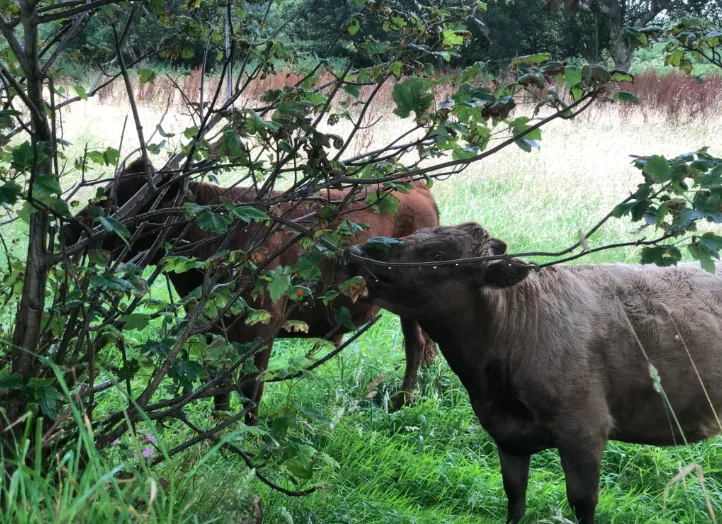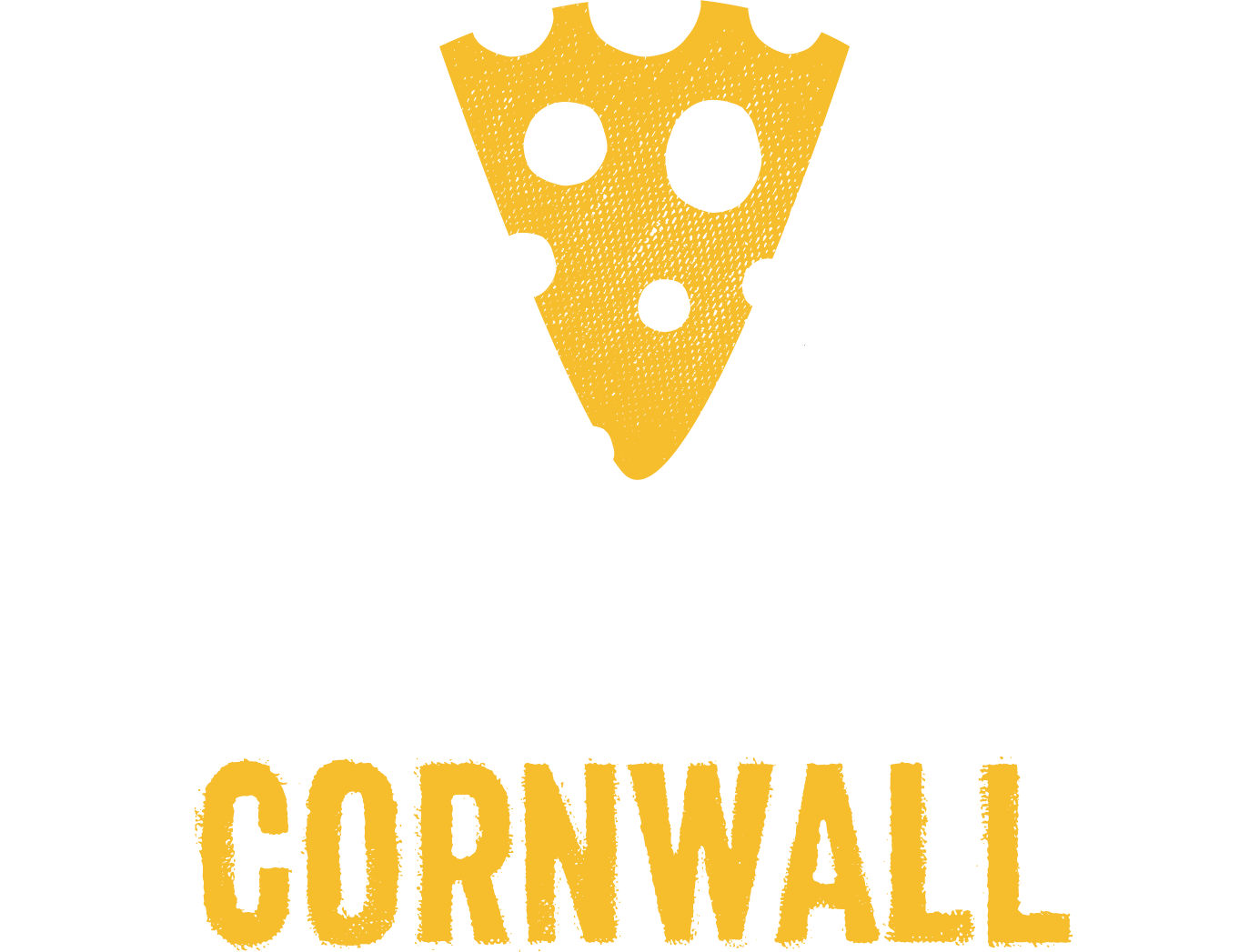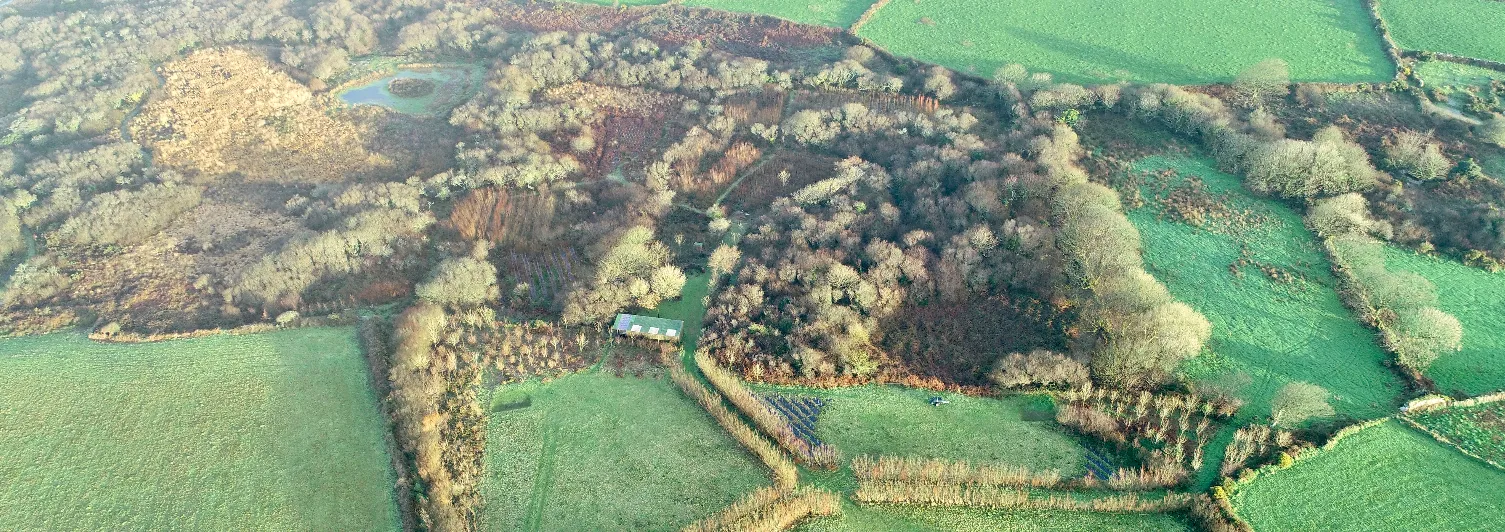Two members of the Sustainable Food Cornwall partnership recently had an opportunity to visit Higher Keigwin Organic Farm in West Penwith for a farm walk. The event was organised through Pasture for Life, which certifies and supports farmers producing 100% grass-fed meat, milk and dairy.
We joined a mixed group of established farmers interested in exploring more regenerative approaches on their farms, together with new entrants to farming. All were keen to learn from the experiences of Lisa and Piers Guy, who have created a truly inspiring, sustainable and diverse business at their “beef and wildlife farm” over the last 28 years.
We started off in the new butchery, which will not only handle the meat from the farm’s Dexter herd but has also been designed to host butchery workshops and courses, led by a local master butcher.
From there, it was off to the beautiful and highly productive herb, fruit and veg garden, where we learned about the adaptations to the polytunnel that have enabled it to better stand up to the challenging north coast winds, and to be more easily repairable and better-insulated. These adaptations, combined with care for the soil, siting the farm’s beehives with direct access to the polytunnel and garden, and clever tricks such as the use of recycled storage heater bricks to create paths and edgings so heat is retained at night, are enabling an amazing variety of fruits and veg to be grown. (Does 120 lemons from a single small tree in an unheated polytunnel in windy West Penwith sound pretty incredible to you too?!)
As we made our way up to the top of the hill, through and past fields of rich and diverse grazing and herbal leys, Piers talked us through the contribution of renewable energy to the farm. The combination of a small wind turbine, solar PV on building roofs, ground source heat pumps and coppiced willow planted in wet areas and cut for heating as well as for sale, have slashed the farm’s energy inputs and generate a decent Feed in Tariff income.
At the top of the hill, we learned more about mob grazing, and the positive impact introducing this system (despite initial reservations) has had on the soil and biodiversity at Higher Keigwin. We met some of the Dexter herd, and the ponies which are currently grazing moorland areas at the top of the farm. (The cows go up there too.) We also talked about what ‘grass-fed’ really means: Pasture for Life is focused on the positive impacts for biodiversity and carbon, human health and wellbeing, and animal health and welfare that 100% pasture brings.
Then it was back down the hill, via a fairly recently-planted labyrinth that’s much-loved by the local community, for a homemade cream tea in the farm’s wild camping area, and a chance to take stock of everything we’d heard. Talk turned to ELMS, carbon credits, biodiversity net gain, meat boxes and community engagement… a great opportunity for farmers to share experiences.
We finished off with a walk through wet meadows (the cows’ favourite place), willow coppice and woodland – both very old and more recently planted by Lisa and Piers. No wellies were needed, thanks to what must have been weeks of painstaking path-laying by Lisa and a class of willing local Year 9 schoolchildren, using crushed and recycled blocks salvaged from around the farm. It was simply incredible to see (and hear) the variety of species in these areas.
I left Higher Keigwin feeling inspired and positive. A diverse mix of activities and income streams, with a circular and permaculture-like approach (and a huge amount of work) have created a sustainable farm business that produces great food (and fibre), is a community asset and a haven for nature. And at a time that’s so challenging for many farmers, hearing some of them – existing and new – talking positively about their plans and ideas for their own farms was some hopeful icing on the cake for me.

Lisa Guy introduces Cornwall Climate Care’s film ‘Food for Thought’. You can watch it here.

